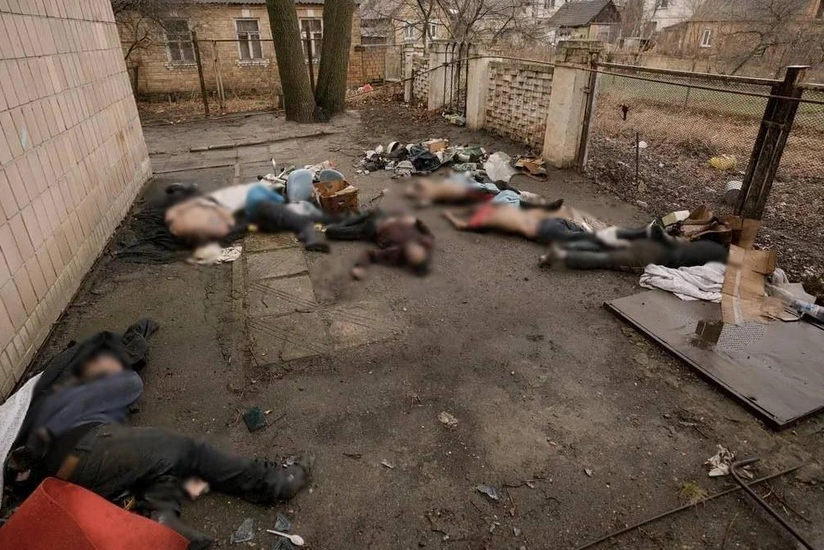New footage released of Russian soldiers executing Bucha residents
- 20 May, 2022
- 06:54

Witness testimony and videos obtained by The New York Times show how Russian paratroopers executed at least eight Ukrainian men in a Kyiv suburb on March 4, a potential war crime, Report informs, citing news agency.
Security camera footage obtained by The Times shows that the soldiers, like those who were ambushed in late February, were paratroopers. The video shows them driving vehicles — such as the BMD-2, BMD-3 and BMD-4 designs — that are used almost exclusively by the Russian Airborne Forces, according to experts from the International Institute for Strategic Studies and the Royal United Services Institute.
The paratroopers patrolled the area, conducting house-to-house searches and operating in and out of 144 Yablunska Street, a four-story office building that the Russians turned into a base and field hospital.
About 300 yards from that base, at 31 Yablunska Street, Ivan Skyba, a 43-year-old builder, and five other fighters had been manning a makeshift checkpoint when the Russians returned. They had a grenade, bulletproof vests and a rifle between them, Mr. Skyba told The Times.
Warned via radio that Russians were back in Bucha and moving in their direction, they hid in the house beside the checkpoint, along with the homeowner, Valera Kotenko, 53, who had been bringing the fighters tea and coffee, Mr. Skyba said.
They were joined later by two more fighters, Andriy Dvornikov and Denys Rudenko, the man wearing the blue sweatshirt in the video.
The men sheltered there overnight. By the morning of March 4, they realized that an escape was impossible. “We are surrounded,” Mr. Rudenko wrote to his friend. “For now we are hiding. They are shooting from armored vehicles and heavy caliber.”
The witnesses said they saw the group of captives in the parking lot in front of the Russian base with shirts pulled over their heads. Yura Razhik, 57, who lives in front of the office building, said some had their hands tied. The Russian soldiers made them kneel down and then shot one of the men, Vitaliy Karpenko, 28, almost immediately, Mr. Skyba said. Mr. Razhik said he also witnessed the shooting.
Mr. Skyba and another captive, Andriy Verbovyi, were then taken inside the building, he said, where they were questioned and beaten before Mr. Verbovyi was shot and killed. The soldiers took Mr. Skyba back to the parking lot, where the other checkpoint guards were still being held.
At one point, one of the checkpoint guards confessed to the Russians that they were fighters, Mr. Skyba said, and that man was eventually let go. He is now under investigation by Ukrainian authorities, according to a local military commander and investigators; a government document seen by The Times specifies it is for “high treason.”
“I was shot and I fell down. The bullet went into my side,” Mr. Skyba said. Photos he shared of his injuries show an entry and exit wound in the left side of his abdomen. A doctor in Bucha who treated his injury and a medical report reviewed by The Times confirmed the injury.
“I fell down and I pretended to be dead,” he said. “I didn’t move and didn’t breathe. It was cold outside and you could see people’s breath.”
The bodies of the men killed in the parking lot and inside the building were brought to the courtyard and, together with the six other victims, would lie there for nearly a month.
Four weeks later, after Russian forces had withdrawn from Bucha, Times reporters visited the scene of the executions. The wall and steps of the building were pockmarked by bullet holes. On the other side of the courtyard, scattered a few feet from where the bodies lay, were spent 7.62x54R cartridge casings, used in the Soviet-designed PK-series machine guns and Dragunov sniper rifles commonly used by Russian troops. The Times also found an unfired 7.62x54R round inside the building.


